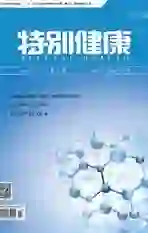Making efforts to reduce kidney transplantation wait—list
2018-07-02黄韵芝
黄韵芝
ZhongshanPolytechnic,ZhongshanCity,GuangdongProvince,PRC 中山職业技术学院 广东 中山 528404
[Abstract] There are too few live and deceased organ donors; lack of supply is one obvious reason which leads to the long waiting list of kidney transplantation. Exploring Methods: for increasing organ supply is one way to solve that problem. To expanded the criteria for donors and exchange kidney source using ‘cross-transplant approach may help to reduce transplantation wait-list in Mainland China.
[Key words] End-stage renal disease (ESRD); Kidney transplantation, Transplantation wait-list.
【中图分类号】R256.83 【文献标识码】A 【文章编号】2095-6851(2018)05--01
Introduction
Not like the other fields of medicine,the area of transplantation is quite young. Fifty years ago,generally,neither transplantation nor dialysis was available,and end-stage renal disease (ESRD) was considered as a terminal illness. In order to improve the life years for ESRD group,the field of renal transplantation developed substantially. The success of kidney transplantation increased the demand naturally,and disparity between the supply of organs and demand for them has emerged. 1 And according to the presented research data,survival rate of ESRD group exceeds survival on dialysis. 2 Those reasons both lead to demand for kidney transplantation increases dramatically.
Expanded-criteriadonors
The term expanded-criteria donor (ECD) refers to kidneys from deceased donors who were normally aged 60 years or older or over 50 years with at least two of the following conditions:history of hypertension,terminal serum creatinine level > 1.5 mg/dl[> 132.6 μmol/L],cerebrovascular accident as cause of death. 3 Using ECD kidneys,could not only decrease the waiting time for renal transplantation,but also increase the availability for kidney transplantation for ESRD group. Compared to dialysis,ECD kidney transplantation has lower costs and better clinical outcomes. But when comparing with standard-criteria donor (SCD) kidney transplantation,ECD kidney transplantation is leading to higher costs and worse clinical outcomes. 3 Therefore,if ESRD patients want to have ECD kidney transplantation,they should first be more likely to fail than SCD kidney,fully understand their current situations and are content in advance.
To develop necessary decision support system using grading approach which aims to help ESPD patients to make choice is also a considerable way to make the ECD kidneys or DCD kidneys ‘available.
Exchangeofrenalsource
This thing once happened in China. A 17-year-old girl and a 39-year-old man,they are both uremia patients,and are in urgent need of kidney transplantation. But both of them could not find match kidney source in their families. Coincidentally,the live kidney donors in their families kidneys match exactly with each other. Those two uremia patients could be free from uremia disease troubles as long as ‘cross-kidney-transplantation. However,this program about ‘cross-transplantation could not pass through from the Medical Ethics Committee in that hospital. The reason for disapproval is that although this program is in line with the ethics and morality,but it is in conflict with the relevant laws and regulations.
In fact,exchange kidney source has already been advocated in the international practice. In 2001,Medicine School of Johns Hopkins University established the first organ transplant matching system. So far,22 patients received their kidneys via the program of ‘cross-transplantation. The International Transplantation Society has made a guideline for kidney donation. The principle of the guideline is that ‘only if patients could not find match kidneys in their lineage or kinship,they could accept kidney donation from non-blood-relation donors.
The Technology Laws and Regulations in China is not so comprehensive,it needs time to develop a more comprehensive one. For China,it is not the right time to expand live organ transplantation using ‘cross-transplant approach. In my view,for the single special case of ‘cross-kidney-transplantation,it should be examined by the Hospital Ethics Committee and be confirmed that both kidneys donors had already fully considered of the program. Moreover,after both of the donors signed up for content contract,this issue should be sent to the Medical Institutions of Health Administration Department for approval. But those ‘cross-transplantation cases should not be too many; it should be very strictly controlled under the current situation in China.
Conclusion
For China,it has its own situation and culture,before taking action for changing the guidelines for kidney transplantation in order to meet the demands,Chinese Government should first make Chinese people to accept the new thinking and realize the benefit of changing current guideline. Change is also not an easy job,it involves many aspects.
Reference
R. Shapiro: Kidney Allocation and the Perception of Fairness. American Journal of Transplantation 2007; 7: 1041–1042.
Aisling E. Courtney Alexander P. Maxwell: The Challenge of Doing What Is Right in Renal Transplantation: Balancing Equity and Utility. Nephron Clin Pract 2009; 11:c62–c68.
Gabriel Danovitch, MD, and Eric Savransky, MD: Challenges in the Counseling and Management of Older Kidney Transplant Candidates. American Journal of Kidney Diseases, Vol 47, No 4, Suppl 2 (April), 2006: pp S86-S97.
